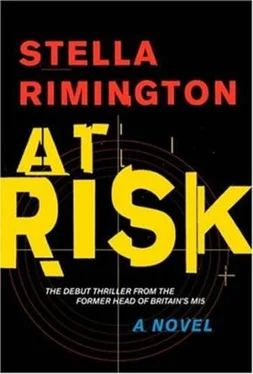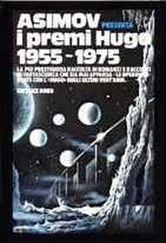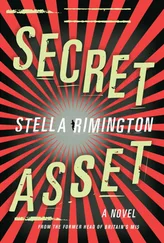She looked around her with mounting irritation. She had just dusted her cappuccino with slimline chocolate powder, the Mail on Sunday and Hello! were waiting on the kitchen table, and Russell Watson was singing on Classic FM.
Really, she thought. I’m not the woman’s keeper; the whole cleaning arrangement had always been strictly cash in hand. If Elsie Hogan had had a dizzy turn down at the bungalows, then she should have rung that fat lump of a daughter of hers. The pub didn’t open till 11:30 and Cherisse would almost certainly be at home, painting her nails or watching TV or doing whatever people did on Sunday mornings in council flats. Unless of course she hadn’t come home, which was equally within the realm of possibility.
In the normal run of things Diane would have been tempted to ring the emergency services and leave the worrying and the problem-solving to them. On this occasion, however, she hesitated. She didn’t want the police turning up at the bungalow and discovering that the girl was a cash-paying customer. She wasn’t quite sure how the police and the tax people and the health and safety people connected up, but she was pretty sure that if they started talking to each other about her it could lead to problems. So she waited and she sipped at her coffee, telling herself that she should sit tight in case Elsie rang back.
After five minutes, during which the phone remained resolutely silent, Diane reluctantly punched out Elsie’s number again. The mobile phone that she had called, an electronic voice informed her, was out of service. She glanced out of the French windows. It was still pouring with rain. From somewhere beyond Dersthorpe, a slender column of smoke was winding into the steel-grey sky.
Staff, Diane mused irritably, wondering where she’d left the keys to the four-wheel drive. One couldn’t survive without them, but my God they could take it out of you.
On the way out she glanced at the kitchen clock. It was 10:30.
They let the first car pass. It was a Fiat Uno covered in unpainted patches of filler, and didn’t look as if it had much life left in it. Parking the Astra at the side of the road between Dersthorpe and Marsh Creake-in the same layby, as it happened, in which Brian Mudie and Wendy Clissold had spent twenty happy minutes the night before-had been a calculated risk. If a police car had passed, that would probably have been the end of it.
But no police car came. The Fiat was followed by a Nissan, in equally poor shape, and as it disappeared a silent mushroom of flame-red smoke leapt into the sky beyond Dersthorpe. The Fiesta’s petrol tank, thought Jean, as the fuel-enriched smoke joined the thickening grey coil from the house. The fire service would almost certainly be on their way already-someone would have seen the bungalow go up-but they probably had to come from Fakenham. With a bit of luck it would be a good five minutes or so before the police were on the case, and at least ten before any roadblocks were set up.
Rain streamed down her face, but strangely, Jean wasn’t cold. Desperation, and the real possibility of capture, had taken her beyond fear to something like calm. She was steady now, and could feel the modest, comforting weight of the Malyah in the pocket of her mountain jacket.
A silver car-she didn’t have time to identify it, but it looked newish and sporty-swung into view, and she heard the thump of a powerful bass speaker. She stepped into the road, arms waving and hair flying, forcing the driver to make an emergency stop.
He was in his late twenties, with an earring and a greasy centre-parting. Techno-trance music poured from the car. “Want to get yourself bloody killed?” he shouted angrily, half opening the door. “What’s your problem?”
Wrenching the Malyah from her jeans, she pointed it at his face. “Get out,” she ordered. “ Now! Or I’ll shoot you.”
He hesitated, slack-jawed, and dropping her aim for a second she put a 9mm round into the seat between his tracksuited legs. The wind whipped away the sharp percussive crack.
“Out!”
He half fell, half climbed out of the car, bug-eyed with shock, leaving the key in the ignition and the engine and the CD player running.
“Into the passenger seat, now. Move! ”
He scrambled unsteadily inside and she reached in and snapped off the music. In the sudden silence, she was aware of the loud beat of the rain on the car roof.
“Seat belt. Hands on your knees.”
He nodded mutely, and she kept him covered as Faraj exited the Astra, loaded the rucksacks into the boot of the silver car, and took his place in the back seat with the map book and the biscuit tin on his lap. He was wearing the Yankees baseball cap beneath the hood of his waterproof jacket, and his face was all but invisible. For perhaps thirty seconds Jean familiarised herself with the gearing and dashboard controls. The car was some sort of Toyota.
“OK,” she said, reversing sharply into the layby and swinging the nose back towards Marsh Creake. “Like I said, you just sit there, understand? Try anything-anything at all-and he’ll shoot you in the head.”
From his pocket Faraj drew the blunt-nosed PSS, reloaded with SP-4 rounds, and slapped back the magazine, which engaged with a businesslike click. The man, very pale, gave the ghost of a nod. Jean let out the clutch. As she drove off, they passed Diane Munday’s metallic-green Cherokee speeding in the opposite direction.
“Navigate for me,” she said to Faraj in Urdu.
The call was logged at 10:39. It was taken by Wendy Clissold, and Liz saw the police constable’s face freeze at the significance of what she was hearing. Clapping her hand over the mouthpiece she turned and shouted across the village hall. “ Guv’nor! House and vehicle alight at Dersthorpe Strand. Unidentified dead female in the vehicle.”
Clissold’s voice steadied as Whitten grabbed the landline phone in front of him. “I’m putting you straight through to Detective Superintendent Whitten, madam,” she continued. “Can you give me your name and number in case we have to call you back?”
Whitten listened intently as Clissold took the details. “Mrs. Munday,” he cut in smoothly. “Tell me.”
Within a couple of minutes an investigative team had been dispatched to Dersthorpe Strand. Forensic officers were making their way from Norwich, and the local fire crew, it turned out, had just left the Burnham Market station. The burning car had been identified as Elsie Hogan’s by a near-hysterical Diane Munday, and Diane had been pretty certain that its occupant was Elsie too.
Liz watched the activity around her, weighing up the ramifications of Diane Munday’s report. There was a chance, she supposed-although instinct told her that it was unlikely-that this was the work of some deranged local arsonist rather than Mansoor and D’Aubigny. But Elsie Hogan, of all people? What had that poor, self-effacing woman ever done to upset anyone?
At 10:45 a call came through from one of the investigative team to say that, while en route to the Strand bungalows, they had discovered a black Vauxhall Astra matching the description of the vehicle sought in connection with the Gunter murder. The Astra was standing at Dead Man’s Hole layby outside Dersthorpe, and an officer had been left to secure it. Despite the rain, its engine was still warm.
Diane Munday, the caller continued, had arrived before the fire had destroyed the safety glass in the Fiesta’s windows, and had reported seeing what looked like bullet holes in the windscreen. No one, on this occasion, was inclined to doubt her.
As Whitten reported the situation to the Chief Constable in Norwich, Liz called Wetherby at his desk. Like her, he had been at work for several hours. Investigations had kept him informed about the identification of Faraj Mansoor and Jean D’Aubigny, and he was receiving regular reports concerning the questioning of the D’Aubigny parents.
Читать дальше












